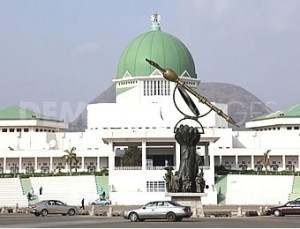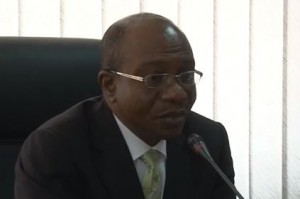ABUJA, Federal Republic of Nigeria. The out-of-court settlement proposed by the Supreme Court over the dispute arising from the amendment of the 1999 Constitution has seen both gladiators in the controversy— President Goodluck Jonathan and the National Assembly engage in a give-and-take deal, which would culminate in the president signing the amended constitution into law.
The presidential assent to make it a legal document is likely to take place today.
The deal between the duo had resulted in a documented terms of settlement dated May 27, which the apex court endorsed on Wednesday.
A former Attorney-General of the Federation and Minister of Justice, Chief Bayo Ojo, signed on behalf of the Federal Government, while Chief Adegboyega Awomolo signed on behalf of the National Assembly.
The deal also saw the Federal Government withdraw its suit against the federal lawmakers who finally bowed to Jonathan’s insistence that an amended constitution must be assented to by the president.
Ojo filed a notice of discountenance of the suit on Wednesday, before the terms were presented before the apex court, signalling the end of the lawsuit.
The parties agreed that the alteration made to section 9 by the two chambers, which deals with president’s assent, should now be deleted.
The peaceful settlement also got the president his demand that the office of the Attorney-General of the Federation and Minister of Justice should not be split.
Same applies to the office of the state Attorneys-General and Commissioner of Justice.
The planned involvement of the National Judicial Council (NJC) in the appointment of both the AGF and state Attorneys-General also went down with the proposed split.
The executive, however, conceded to the legislature the proposed separation of the office of the Accountant-General of the Federal Government from the office of the Accountant-General of the Federation.
The amended provisions on Free Basic Education and Maternal Health Care Services would now be deleted, with both parties agreeing that other extant legislations had cared for the issues they were primed to address.
The amendment on referendum in state creation is also up for deletion as another concession by the National Assembly.
Jonathan, however, agreed to the amendment that pegged out-of-budget spending at three months, instead of the operational six months.
National Assembly also got its desire of a bill passed by both chambers automatically becoming an act after 30 days of inaction by the president after such is made available to him.
If such bill is vetoed by the president within 30 days, the provision on override would apply.
Though the legislative immunity provision was not challenged by the president, Nigerian Tribune gathered that a coalition of civil societies had commenced legal move to deny federal lawmakers the benefit of the controversial amendment.
A copy of the agreement which Nigerian Tribune obtained from a judicial source, read “TERMS OF SETTLEMENT, WHEREAS: “The Constitution of the Federal Republic of Nigeria, Fourth Alteration Act, 2015 was passed by the National Assembly after it had been approved by the resolution the House of Assemblies of the 36 states of the federation.
“The Act was presented to the President, Dr Goodluck Jonathan, GCFR for assent, but by his letter dated 13th April, 2015, he made observations in respect of some sections of the Fourth Alteration Act.
“AND consequent upon the observations, the Honourable Attorney-General of the Federation and Minister of Justice instituted Suit No: SC/214/2015 in which the objectionable sections were made issues for determination in the Supreme Court.
“The Supreme Court at its sitting of Monday, the 25th day of May, 2015 directed parties to explore alternative dispute resolution mechanism with a view to resolving the case amicably.
At the meeting of the representatives of the executive and legislative arms of government, held on Tuesday, the 26th day of May, 2015, it was agreed that the views of the president be considered and effected by deleting the following provisions of the Alteration Act 2015: “Alterations made to Section 8 of the Principal Act on referendum in respect of state creation.
“Alterations made to Section 9 of the Principal Act dispensing with the assent of the president in the process of Constitutional Amendment.
“Alterations made in Sections 45a- 45b of the Act relating to Free Basic Education and Maternal Health Care Services.
“Alterations made to Sections 150, 174, 195 and 211 of the Principal Act relating to the separation of the office of the Attorney-General of the Federation and the Minister of Justice, as well as the Attorney- General of a state and Commissioner for Justice, respectively.
“That the suit of the Attorney General in Suit No: SC/214/2015 be withdrawn.
“That the President, Dr Goodluck Jonathan shall assent to the Fourth Constitution Alteration Act, 2015.”
Credit: Tribune (Nigeria




